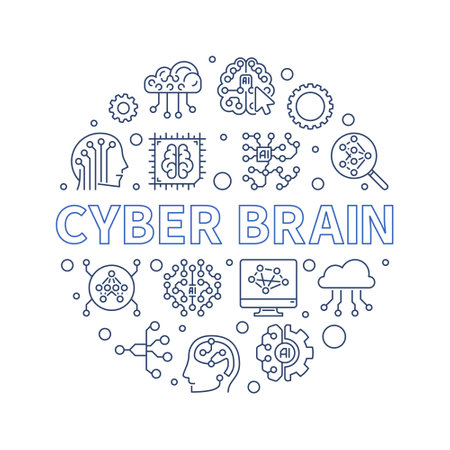Introduction to Circadian Rhythms
In recent years, the science of sleep has attracted considerable attention across the UK, with circadian rhythms emerging as a central topic in discussions about wellbeing and productivity. Circadian rhythms are natural, internal processes that regulate the sleep-wake cycle and repeat roughly every 24 hours. Governed primarily by light exposure and biological clocks within our bodies, these rhythms influence when we feel alert or sleepy, as well as critical bodily functions such as hormone release, digestion, and body temperature regulation. Understanding circadian rhythms is especially pertinent in Britain, where seasonal daylight variations and modern lifestyle habits can disrupt our natural cycles. Recognising how these rhythms function—and their impact on daily life—can play a pivotal role in improving sleep quality, cognitive performance, and overall health for people living in the UK.
2. The Biological Science Behind Sleep
The human sleep-wake cycle is intricately governed by circadian rhythms—internal 24-hour clocks influenced by both genetic and environmental factors. Central to this process is the suprachiasmatic nucleus (SCN) within the hypothalamus, which responds to light signals received through the retina. In the British context, seasonal variations in daylight hours can significantly affect circadian regulation, with research from the University of Surrey (2023) indicating that Britons experience later melatonin onset during summer compared to winter months.
Key Physiological Processes
Hormonal fluctuations are pivotal in regulating sleep patterns. Melatonin secretion rises in response to darkness, signalling the body to prepare for rest, while cortisol levels peak in the early morning to promote wakefulness. Disruption of these rhythms—common among shift workers or those exposed to excessive artificial light—can lead to adverse health outcomes, including impaired cognitive function and increased risk of chronic conditions such as obesity and cardiovascular disease.
Data on Circadian Rhythm Disruption in the UK
| Factor | Prevalence in UK (%) | Health Impact |
|---|---|---|
| Shift Work | 20 | Higher rates of insomnia, metabolic syndrome |
| Blue Light Exposure (Evenings) | 65 | Delayed sleep onset, reduced sleep quality |
| Seasonal Affective Disorder (SAD) | 7-10 | Mood disturbances, disrupted sleep cycles |
Recent Research Insights
A 2022 study from King’s College London found that individuals adhering to consistent sleep schedules demonstrated improved mental well-being and better overall health markers than those with irregular routines. Additionally, NHS data highlights a growing awareness of chronotype differences—whether one is a “morning lark” or “night owl”—and their implications for work productivity and social engagement in the UK. These findings underscore the importance of aligning daily habits with natural circadian tendencies to optimise both physical and mental health across British lifestyles.

3. Disruption of Circadian Rhythms in Modern British Life
The realities of modern British life can significantly disrupt our circadian rhythms, with urbanisation, technological advances, and shifting work patterns all playing a role. The UK’s densely populated cities, such as London and Manchester, are illuminated by artificial lights well into the night. This abundance of blue light exposure—whether from streetlights or digital screens—can suppress melatonin production, making it harder for individuals to wind down naturally in the evening.
Technology use is another major factor. Recent surveys indicate that over 80% of Britons use electronic devices in the hour before bed, a habit linked to delayed sleep onset and poorer sleep quality. The omnipresence of smartphones and tablets means that many people are exposed to stimulating content and bright screens at times when their bodies should be preparing for rest.
Work schedules in the UK are also increasingly irregular, particularly with the rise of shift work in sectors such as healthcare, hospitality, and transport. According to the Office for National Statistics, nearly one in five employees now works some form of shift work. These non-traditional hours can cause chronic misalignment between an individual’s internal clock and their daily routine—a phenomenon known as social jetlag. This misalignment has been associated with increased risks of metabolic disorders, cardiovascular disease, and mental health issues.
Furthermore, the British tendency towards long commutes and late working hours often encroaches on valuable sleep time. Combined with social commitments and the cultural acceptance of late-night activities (such as evening pub gatherings or streaming television), it becomes clear that many aspects of contemporary British life challenge our natural sleep-wake cycles.
4. Societal Impact: Sleep and Mental Health in the UK
The relationship between disrupted circadian rhythms and mental health challenges is a growing area of concern within the UK. Modern British lifestyles—marked by irregular work schedules, exposure to artificial light, and high levels of screen time—can significantly disrupt natural sleep cycles. According to the Mental Health Foundation, over a third of Britons report not getting enough sleep, and this shortfall is closely linked with heightened risks of anxiety, depression, and other mood disorders.
Correlation Between Sleep Disruption and Mental Health
Multiple UK-based studies highlight the strong correlation between poor sleep and deteriorating mental health. For example, research conducted by Kings College London found that individuals with insomnia or delayed sleep phase syndrome are up to three times more likely to develop depression compared to those with healthy sleep patterns. The NHS also notes that lack of adequate rest impairs cognitive function, emotional regulation, and overall well-being.
Key UK Statistics on Sleep & Mental Health
| Indicator | Statistics (UK) |
|---|---|
| Adults reporting insufficient sleep | 36% (Mental Health Foundation, 2023) |
| Youths with disrupted circadian rhythms | 42% (Sleep Charity UK, 2022) |
| Mental health issues linked to poor sleep | Up to 60% increase in risk (Kings College London) |
Cultural Factors Influencing Circadian Health
Bespoke factors such as shift work in the NHS, late-night pub culture, and persistent use of digital devices contribute uniquely to the disruption of British circadian rhythms. These societal trends not only undermine sleep quality but also intensify stress levels and susceptibility to mental health disorders across diverse age groups.
5. Optimising British Lifestyles for Better Sleep
Understanding the science of circadian rhythms is only the first step; translating this knowledge into everyday British life is where real change happens. With long working hours, unpredictable weather, and a strong culture of tea breaks, optimising sleep requires practical, evidence-based strategies tailored to the UK context.
For Employers: Fostering a Sleep-Friendly Workplace
British employers can play a pivotal role in supporting employees’ circadian health. Flexible working hours, especially with hybrid and remote work on the rise, allow staff to align tasks with their natural energy peaks. Encouraging regular breaks and exposure to natural daylight—perhaps by promoting lunchtime walks or providing well-lit break areas—can help regulate melatonin production. Educating staff about the importance of sleep and discouraging after-hours emails further supports healthy routines.
For Schools: Rethinking Early Starts
UK schools traditionally start early, clashing with teenagers’ delayed circadian rhythms. Research suggests that later school start times improve alertness and academic performance among adolescents. Schools can also incorporate lessons on sleep hygiene into PSHE (Personal, Social, Health and Economic Education) curricula, helping students develop lifelong habits for managing screen time and evening routines.
For Individuals: Science-Backed Tips for Everyday Life
On an individual level, simple yet effective adjustments can make a significant difference. Aim for consistent sleep and wake times—even on weekends—to reinforce your body clock. Make the most of limited sunlight by spending time outdoors during daylight hours, even if it’s just a brisk walk around the park or popping out for a sandwich at lunch. Limit caffeine intake after mid-afternoon and consider switching to herbal teas in the evening. Creating a cool, dark sleeping environment—think blackout blinds to counter early sunrises or streetlights—aligns with best practice for sleep hygiene.
A National Conversation
As awareness grows about the impact of circadian rhythms on health and productivity, there’s an opportunity for nationwide dialogue. Policy-makers, businesses, educators, and individuals alike can work together to prioritise sleep health as part of Britain’s wellbeing agenda. By embracing both scientific insight and uniquely British habits—from afternoon tea to Sunday lie-ins—we can collectively create an environment that nurtures better sleep for all.


